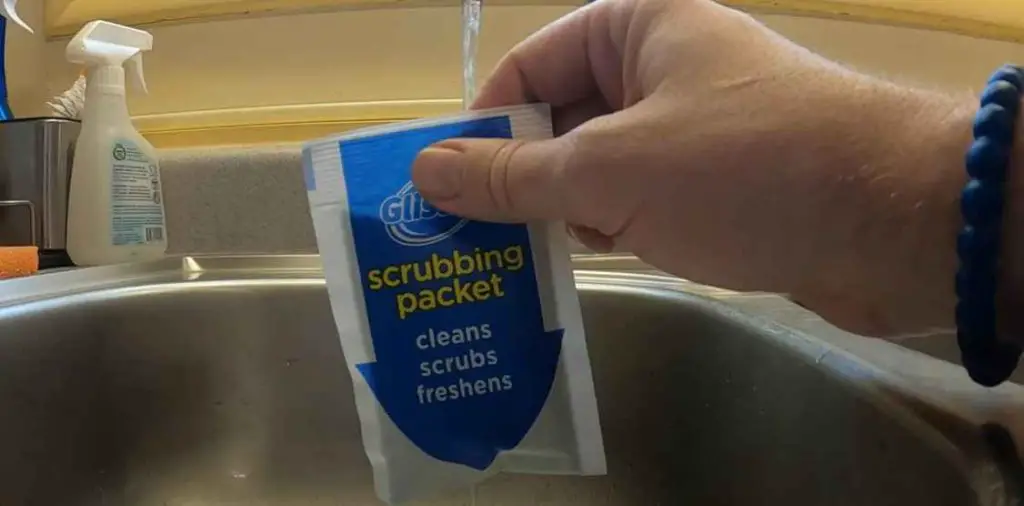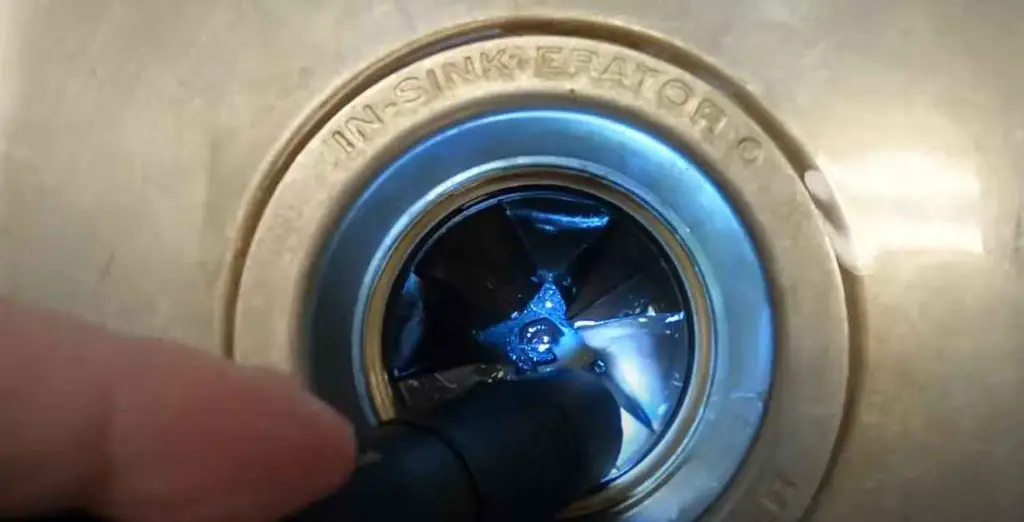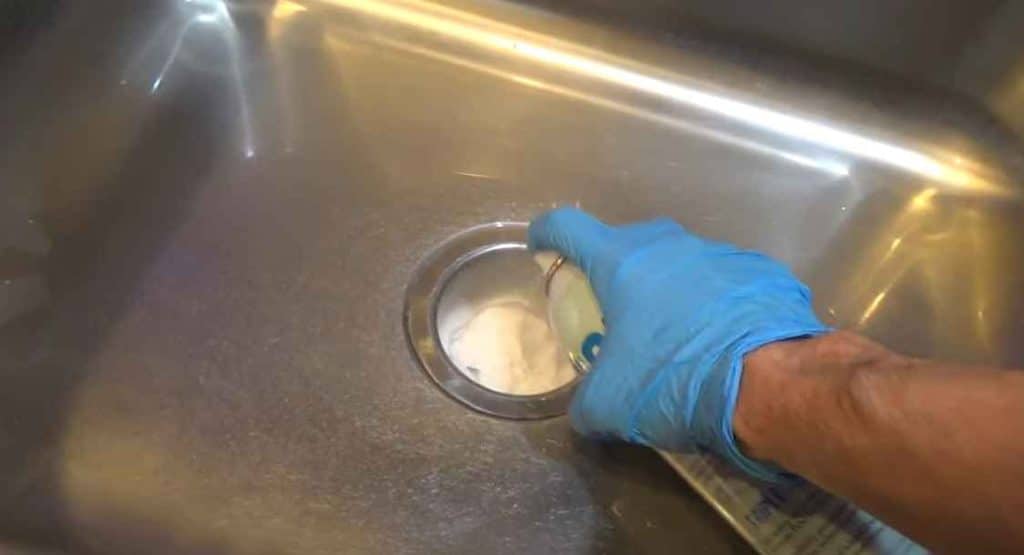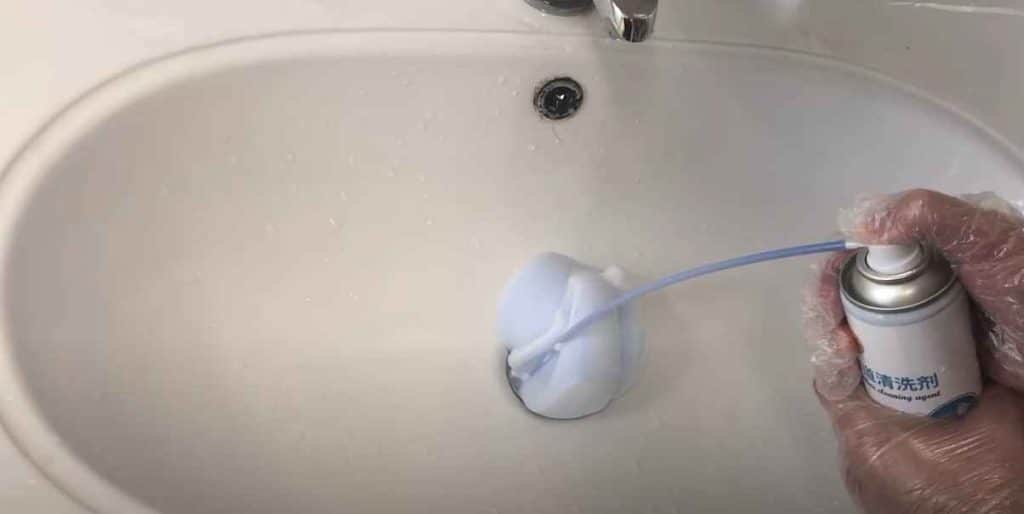Foam drain cleaner is a chemical solution used to dissolve clogs in pipes. It expands within the drain, aiding in the removal of obstructions.
Managing a clogged drain can be a challenging household issue, often disrupting daily routines. Foam drain cleaners offer an efficient solution, as their expanding properties allow them to coat the entire pipe, ensuring thorough cleaning action. This type of cleaner typically works well with organic material and soft blockages such as hair, grease, and soap buildup, providing a convenient alternative to manual plumbing tools.
It’s crucial to follow the product instructions carefully to achieve the best results and maintain safety. Always ensure proper ventilation and wear protective gear, as the chemicals involved can be hazardous. Regular use of foam drain cleaners as part of maintenance can also help prevent future clogs from forming, keeping drains clear and functional.
The Science Behind Foam Drain Cleaners

Have you ever wondered how a foam drain cleaner powers through tough clogs in your pipes? It’s all about the science! Let’s dive into what makes these cleaners work so well. You’ll be surprised by the complex chemistry that goes into every fizz and bubble.
Chemical Composition
Foam drain cleaners pack a punch, thanks to their unique chemical formulas. Commonly, these cleaners contain:
- Sodium hydroxide – breaks down organic matter
- Sodium hypochlorite – disinfects and bleaches
- Foaming agents – expand to coat the entire pipe
When you pour them down the drain, a chemical reaction begins. This reaction is designed to tackle the gunk in your pipes safely.
Mechanism Of Action
Foam drain cleaners work in two stages. The first stage involves:
- Pouring the cleaner into the clogged drain
- The cleaner spreading and foaming up
During the second stage, the cleaner’s chemicals break down the clog. This is done by:
- Dissolving organic material like hair and soap scum
- Sanitizing the drain as it works
The foam’s expansion ensures the entire surface of the pipes is covered and cleaned. This helps to eliminate the blockage and leave your drains smelling fresh.
Comparing Foam To Traditional Liquid Cleaners
Drain cleaners come in many forms, each promising to tackle those pesky clogs. But between foam and traditional liquid drain cleaners, which reigns supreme? Let’s delve into the details to see which could be the clog-busting champion your pipes need.
Efficacy On Different Types Of Clogs
Not all clogs are equal, and the battle of foam versus liquid cleaners is fierce. Foam cleaners are like a smart bomb for your pipes. They expand after application, reaching every nook and cranny.
- Great for soap scum and hair clogs
- Works well in both vertical and horizontal pipes
- Longer dwell time helps break down stubborn build-up
Liquid cleaners are the quick responders. They plunge straight to the problem with a less targeted approach.
- Fast action for organic blockages
- Best for simple, straightforward clogs
- May require multiple applications for tougher clogs
Safety And Environmental Impact
The safety and green factor can heavily influence your choice. Foam cleaners often come out on top in this realm.
| Cleaner Type | Safety | Environment |
|---|---|---|
| Foam Cleaners | Less harsh chemicals | More eco-friendly options |
| Liquid Cleaners | Can be corrosive | Potential water pollutants |
Foam cleaners tend to be gentle on pipes and personal health.
They use less caustic ingredients and are kinder to the ecosystem.
Liquid cleaners pack a potent punch that can corrode pipes over time.
They may contain more harmful substances that risk our waterways.
Step-by-step Guide To Using Foam Drain Cleaners

Dealing with a clogged sink can be frustrating, but foam drain cleaners offer a simple and effective solution. Understanding how to properly use a foam drain cleaner ensures that your pipes are cleared with maximum efficiency. Follow this step-by-step guide for a hassle-free drain unclogging experience.
Preparing Your Sink And Drain
Before applying any cleaner, ensure safety and effectiveness with preparation:
- Wear protective gloves: Safety comes first.
- Read instructions: Each cleaner has unique directions.
- Remove debris: Clear solid blockages manually.
- Check water presence: Foam needs water to activate.
Application Process
The correct application is key to clearing your drain:
- Measure cleaner: Follow the product’s guide for quantity.
- Pour into drain: Slowly introduce the foam to the area.
- Wait for action: Allow time for the foam to expand and work.
Post-treatment Steps
After using the drain cleaner, finalize the process with care:
- Rinse thoroughly: Flush the drain with hot water.
- Inspect the flow: Check if water drains smoothly.
- Repeat if needed: Tough clogs might need a second go.
Troubleshooting Common Foam Drain Cleaner Issues
When your sink or shower starts to drain slowly, foam drain cleaner seems like a miracle worker. But what if it doesn’t? Don’t fret! Understanding common issues with foam drain cleaners can keep your pipes clear and your mind at ease.
Dealing With Persistent Clogs
Sometimes, even after you’ve used a foam drain cleaner, the clog won’t budge. Persistent clogs need extra attention.
- Wait for the cleaner to dissolve the clog.
- Follow the instructions on the product label carefully.
- Use a plunger after applying the cleaner for extra force.
- If the clog remains, try a different type of cleaner designed for tougher blockages.
- As a last resort, call a professional plumber.
Avoiding Damage To Pipes
To ensure your pipes stay in top condition while using foam cleaners, follow these tips:
- Always choose a foam drain cleaner safe for your pipes. Check if it’s suitable for PVC or metal pipes.
- Do not use excessive amounts to avoid pipe damage.
- Avoid mixing different chemicals. Combining cleaners can cause harmful reactions.
- Use hot water after the cleaning process to flush out any remaining cleaner.
- If unsure, seek advice from a plumber about the safest options for your home.
Regular pipe maintenance can prevent damage and keep your plumbing system healthy.
The Best Foam Drain Cleaners On The Market

Drain blockages can turn from a minor inconvenience to a major problem in no time. Foam drain cleaners are game changers for pipes in distress. They expand to reach every nook and cranny, ensuring a thorough cleanse. Let’s explore the finest foam drain cleaners available today.
Top-rated Brands
Renowned for efficiency, these brands top the market:
- Drano Max Gel: Clings to clogs for maximum removal
- Liquid-Plumr: Offers a powerful duo-action system
- Green Gobbler: An eco-friendly option that packs a punch
Cost Comparison
| Brand | Size | Price |
|---|---|---|
| Drano Max Gel | 32 oz | $5.99 |
| Liquid-Plumr | 42 oz | $6.50 |
| Green Gobbler | 31 oz | $7.99 |
User Reviews
What consumers say:
- Drano Max Gel users report clogs disappear like magic.
- Liquid-Plumr supporters highlight its fast action.
- Green Gobbler fans appreciate its environmental friendliness.
Preventative Measures And Drain Maintenance Tips
Keeping drains clear is vital for a happy home. Foam drain cleaners work wonders, but routine care keeps issues at bay. Explore ways to keep drains in top shape without harsh chemicals.
Regular Cleaning Practices
Regular cleaning stops clogs before they start. Follow these steps for smooth-running drains:
- Weekly rinses with hot water clear away early buildup.
- Use a drain strainer to catch debris. Clean it out often.
- A mix of baking soda and vinegar once a month is a proactive measure to avoid blockages.
- Be mindful of what goes down the drain. Grease, coffee grounds, and hair are common culprits of clogs.
Natural Alternatives And Home Remedies
For those who prefer eco-friendly options, natural methods can be effective:
| Material | Method | Frequency |
|---|---|---|
| Baking Soda & Vinegar | Pour down the drain, followed by boiling water | Monthly |
| Boiling Water | Pour directly into the drain | Weekly |
| Lemon Juice | Squeeze into the drain for a fresh scent | As needed |
Remember, consistency with these natural cleaners aids in maintaining free-flowing pipes.
Frequently Asked Questions Of Foam Drain Cleaner
Does Foam Drain Cleaner Work?
Yes, foam drain cleaners can effectively unclog drains by dissolving common blockages such as hair and grease. Always follow the instructions for safe and proper use.
How Do You Use Foam Drain Cleaner?
Read the foam drain cleaner’s instructions before starting. Wear protective gloves and glasses for safety. Pour the specified amount into the drain. Allow the foam to work as directed, typically 15 to 30 minutes. Rinse thoroughly with hot water afterwards.
Is Foam Easy To Clean?
Foam can be relatively easy to clean, as it often responds well to gentle washing with mild soap and water. However, the ease of cleaning may depend on the type of foam and the nature of the stains or dirt, requiring different methods for optimal results.
What Is The Best Product To Clean A Drain?
The best product for cleaning a drain is a mixture of baking soda and vinegar, followed by hot water. Alternatively, enzyme-based cleaners work effectively for organic clogs. Always follow the manufacturer’s instructions for commercial cleaners.
How Do You Make Foam Drain Cleaner?
To make foam drain cleaner, combine baking soda and vinegar in equal parts. Pour the mixture down the drain, let it sit for an hour, then flush with hot water.
Is Foam Better Than Water?
The superiority of foam over water depends on the specific context and application. While water is generally more effective for extinguishing most common fires, foam may be preferred in situations where flammable liquids are involved, as it forms a blanket that helps smother the flames and prevents re-ignition.
Conclusion
To wrap up, foam drain cleaners offer a powerful solution for stubborn clogs. Their ease of use and efficiency make them a go-to for quick fixes. Remember, selecting the right product is crucial for optimal results. Regular maintenance is key, ensuring your drains remain clear and functional.
Follow a stress-free plumbing experience with the right foam cleaner at your side.

